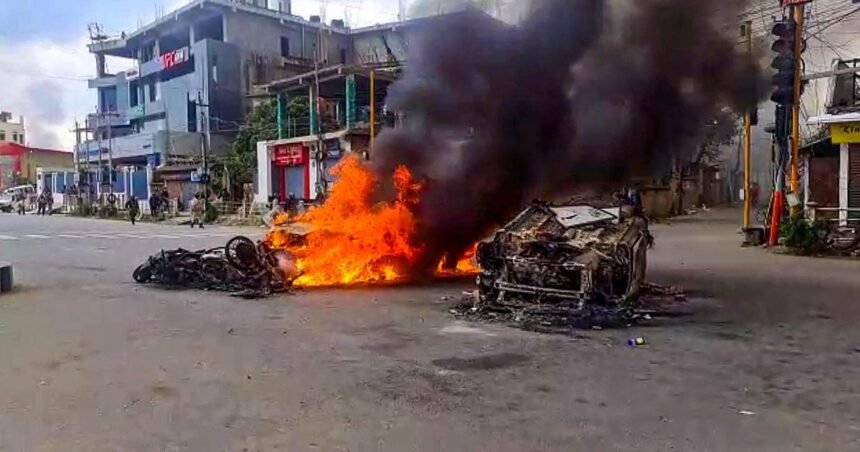The Indian state of Manipur has been engulfed in violence between the tribal communities and the majority Meitei community, resulting in the displacement of over 9,000 people from their villages. The situation has become so dire that the state government has issued “shoot at sight” orders to contain the spiralling violence.The orders were issued after widespread rioting broke out, which required the deployment of 55 columns of the Army and Assam Rifles to control the situation. The violence has led to a humanitarian crisis, with thousands of people fleeing their homes and seeking refuge in temporary shelters.The conflict in Manipur has been ongoing for decades, with the tribal communities demanding greater autonomy and rights over their land and resources. The Meitei community, which makes up the majority of the state’s population, has historically held the reins of power and control over the state’s resources, leading to a deep-seated sense of resentment and inequality among the tribal communities.The current spate of violence appears to have been triggered by a dispute over land between a Meitei landlord and a tribal tenant. The dispute quickly escalated, with both sides resorting to violence, leading to widespread rioting and arson.The situation in Manipur has drawn the attention of the country’s political leaders, with Rajya Sabha MP, K. Vanlalvena, calling for a resolution to the conflict. He has called for a dialogue between the various communities to find a peaceful solution to the crisis and prevent further bloodshed.The violence in Manipur is a stark reminder of the deep-rooted social and political inequalities that exist in many parts of India. The government must take proactive steps to address the underlying causes of the conflict and work towards a lasting resolution that is equitable and just for all communities involved.In the short term, it is imperative that the government provides adequate support and assistance to the displaced people and ensures that they are able to return to their homes safely. The deployment of the Army and Assam Rifles must be carried out with the utmost care and restraint, to avoid further aggravating the situation.The crisis in Manipur also underscores the need for greater decentralization and devolution of power to the state and local levels. This would allow for greater participation and representation of the tribal communities in decision-making processes, and help to address the underlying grievances that have led to the current conflict.In conclusion, the situation in Manipur is a stark reminder of the urgent need for greater social and political equity in India. The government must take proactive steps to address the underlying causes of the conflict and work towards a lasting solution that is just and equitable for all communities involved. It is imperative that the immediate needs of the displaced people are met and that the deployment of security forces is carried out with utmost care and restraint.
Notification
Show More
Latest News







